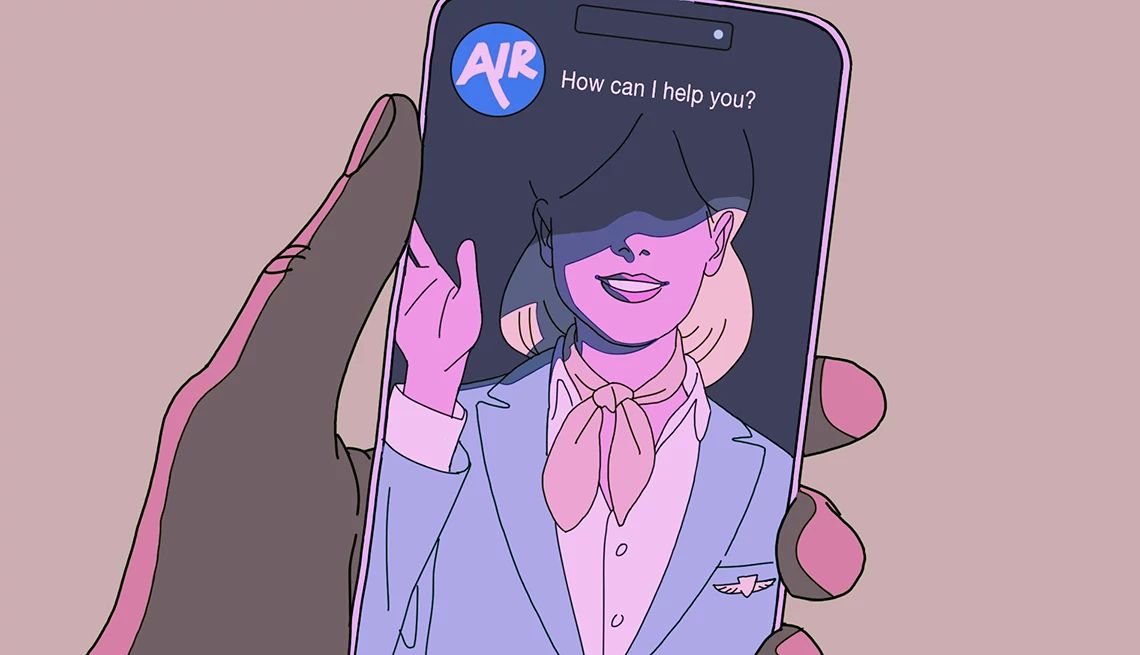AARP Hearing Center


Several months ago, Susan and her husband, Bob, both in their 60s, got a flat tire on the way to the airport and missed their flight from Birmingham, Alabama, to Quebec. When she called American Airlines, the agent said there were no seats on any direct flights for the next three days, but United Airlines could get them to Quebec through Atlanta. So Susan, who has asked us not to use their real names, Googled the United website. And that’s when the trouble began.
The site she thought was United’s had a notice that their website was down and listed a phone number for bookings. Susan called the number, and an agent found a flight from Atlanta to Quebec. Their only option was two seats in business class. Fine, she said. But later when she checked her credit card account, she was shocked to find not one charge but two: A United charge for around $1,200, plus another $1,200 to a company she didn’t recognize.
Susan thought she’d spoken directly with United to book the ticket. But after searching for the mystery company online, she discovered she’d dealt with a booking agency — and it was charging exorbitant fees.
She is hardly alone in experiencing an airline-related scam, which often involve fake customer-service agents.
Targeting frustrated passengers
Complaining online about airlines may feel cathartic, but the companies aren’t the only ones reading your posts. Scammers and their bots are lurking on social media, searching for screeds from angry travelers about cancellations or delays. One scheme involves the criminals pretending to be airline customer service representatives and using fake social media accounts to contact frustrated fliers with offers to help. They then ask for information such as your booking confirmation number, phone number or bank account. They might even “send passengers to a spoofed site that harvests their personal information and use it to steal the passenger’s identity or rack up charges on their accounts,” the FTC warns.
How plentiful are fake customer service reps on social media? A 2024 investigation by Which?, a British consumer organization, found fake X (formerly Twitter) accounts for every major British airline, from British Airways to Virgin Atlantic. And the bogus accounts often responded to airline customers faster than the actual airlines, the organization discovered.




































































More From AARP
Clean Energy Scams Surge
How to spot and avoid scammers touting big savings from bogus solar and other clean energy plans
Four Election Scams to Avoid This Year
Criminals may target voters with bogus websites and other fraudAI Fuels New, Frighteningly Effective Scams
The technology can help criminals impersonate celebs, law enforcement — or even you
Recommended for You